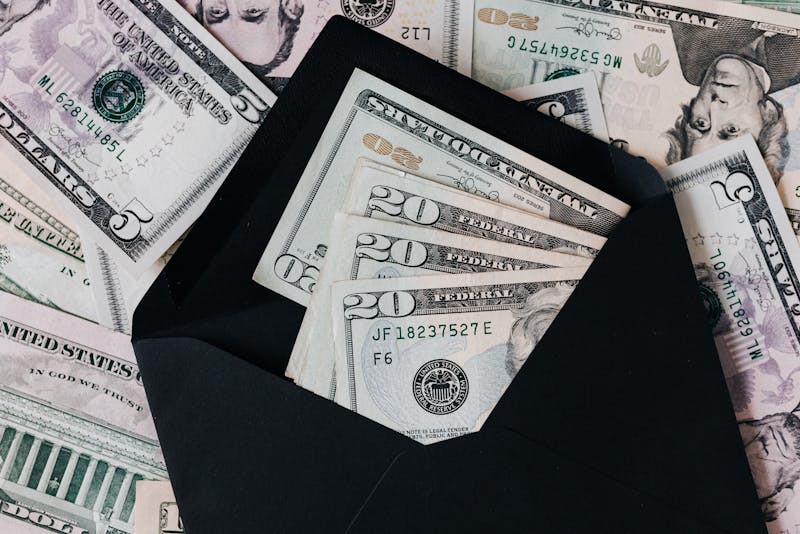Taxes are inevitable, just like death and the fact that your coffee will get cold before you finish it. But what about Capital Gains Tax? The Taxman cometh, indeed. It's the tax that everyone loves to hate, but few of us understand. Whether you're a seasoned investor or a first-time seller, navigating the world of Capital Gains Tax can be daunting.

But fear not, my friend. You don't have to face it alone. In this article, we'll unpack the elusive Capital Gains Tax and break it down into bite-sized pieces. So grab a cup of coffee (or tea, if you're British), sit back, and let's dive into the wild world of taxes.
What is Capital Gain Tax?
So, you want to know what Capital Gains tax is? Well, my friend, it's like this - imagine you bought a painting for $100, and after a few years, it becomes the next Mona Lisa, and you sell it for $10,000. Congrats, you just made a profit of $9,900! But before you start dreaming about your newfound fortune, the government wants a cut of that sweet, sweet cash, and that's where Capital Gains tax comes in.
Capital Gains tax is a fee you pay on the profit you make from selling assets like stocks, real estate, or bonds. The rate varies depending on the asset type and how long you hold it. If you hold it for more than a year, you might catch a break with lower tax rates.
Knowing about Capital Gains tax is essential if you want to be a savvy investor and avoid any unwanted surprises come tax season. So, keep an eye on those investments, and maybe one day, you'll be the proud owner of the next Mona Lisa!
Long-Term Capital Gains
So, what are long-term Capital Gains? Well, they're basically profits you make from selling assets that you've held onto for more than a year. And the best part? They're subject to lower tax rates than your regular income! That's right, Uncle Sam is actually cutting you some slack for being a smart investor.
But wait, there's more! The tax rates for long-term Capital Gains are consistent across different income levels, so everyone gets a fair shake. However, if you're a high roller, you might be subject to an additional total investment income tax of 3.79%. Don't worry, though - you can always console yourself with the knowledge that you're making more money than the rest of us.

Short-Term Capital Gains
You know what they say - short-term gains, long-term pains. But let's focus on the present, shall we? Short-term Capital Gains are those made from selling assets that you've held for a year or less. And while they may bring you a quick buck, they also come with a tax bill. Brace yourself because short-term gains are taxed at your ordinary income tax rates. For those high rollers out there, that could mean a tax rate as high as 37%, plus a side of Medicare tax. So, before you go chasing that quick cash, remember these wise words - always calculate the tax man's cut.
How to Calculate Capital Gain Taxes?
Let's face itcalculating taxes can be a real snoozefest. But fear not, my friend! I'm here to make it as fun and engaging as possible. So buckle up and get ready to dive into the exciting world of capital gain taxes!
Determine the Basis
The basis is the starting point for calculating capital gain taxes. It's the original purchase price of the asset plus any additional costs like commissions, fees, and improvements. But wait, there's more! If you acquired the asset through inheritance or as a gift, the basis may be different and require adjustments. It's like a math puzzle but with real money!
Compute the Capital Gain
Now that you have the basis, it's time to subtract it from the selling price to calculate the capital gain. This is where you find out how much you've made (or lost, let's not be too negative) from selling the asset. It's like a game show, but instead of winning a car, you win the knowledge of how much you owe in taxes!
Differentiate Between Long-Term and Short-Term Gains
Hold on to your hats, folks, because things are about to get exciting! Short-term Capital Gains are assets held for one year or less before selling. They're taxed at ordinary income tax rates, which vary depending on your income bar and filing status. Long-term gains, on the other hand, are held for more than one year and are taxed at preferential rates. That's right, you get rewarded for holding on to things!

Apply Appropriate Tax Rates
Short-term Capital Gains are taxed at your regular income tax rates, while long-term gains are taxed at specific rates based on your income level. These rates can range from 0% to 20% for most taxpayers, with additional Medicare taxes applicable for higher-income individuals. But don't worry; there are deductions, exemptions, and credits available to reduce your overall tax liability.
Consider Additional Factors
Different jurisdictions may have specific rules and regulations regarding Capital Gains taxation, so it's essential to understand the relevant laws in your area. But don't let that scare you off! Once you've mastered the basics, you can tackle anything that comes your way.
Bottom Line!
Capital Gains tax may seem like a daunting and complex topic, but with the right resources and knowledge, it can be navigated successfully. Just remember, the taxman cometh, and it's better to be prepared than to be caught off guard.
With a little bit of research and a lot of coffee, you'll be well on your way to understanding the ins and outs of this tax. And who knows, maybe one day you'll be able to explain it to your friends over a round of drinks.




